Well Balanced Quality Nutrition Secret Of High Quality Milk Production
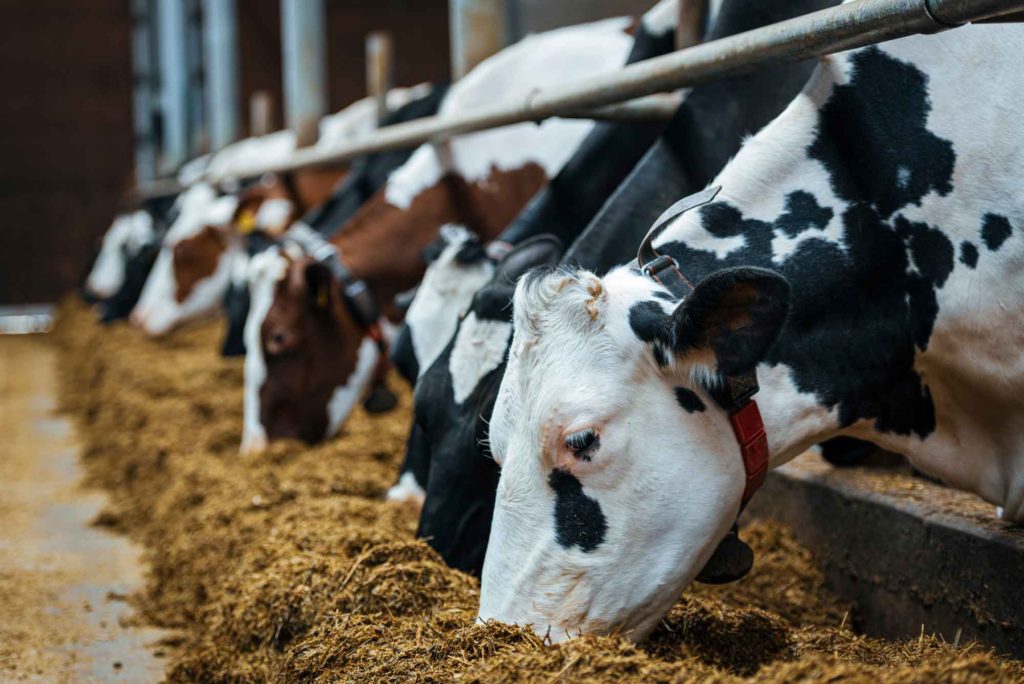
More than 6 billion people consume milk or dairy products globally and its consumption is increasing day by day. Milk is a complete food in itself, and a key ingredient in butter, desi ghee, confectionaries and several cosmetics, but rarely do we consider what goes into the production of milk. Well balanced quality nutrition is crucial for the process of producing high-quality milk from start to finish.
Animal feeding
Proper cattle feeding plays a vital role not only in milk production but also in maintains the cattle health, body condition score (BCS) and breeding cycle, especially first two months of lactation are very crucial. Provision of quality fodder and concentrate/Dasan Feed and free-choice water as per requirement for milk production and maintenance during the first two months after parturition ensures higher lactation yield and less problems in the following breeding cycle as compared to those who received poor quality nutrition.
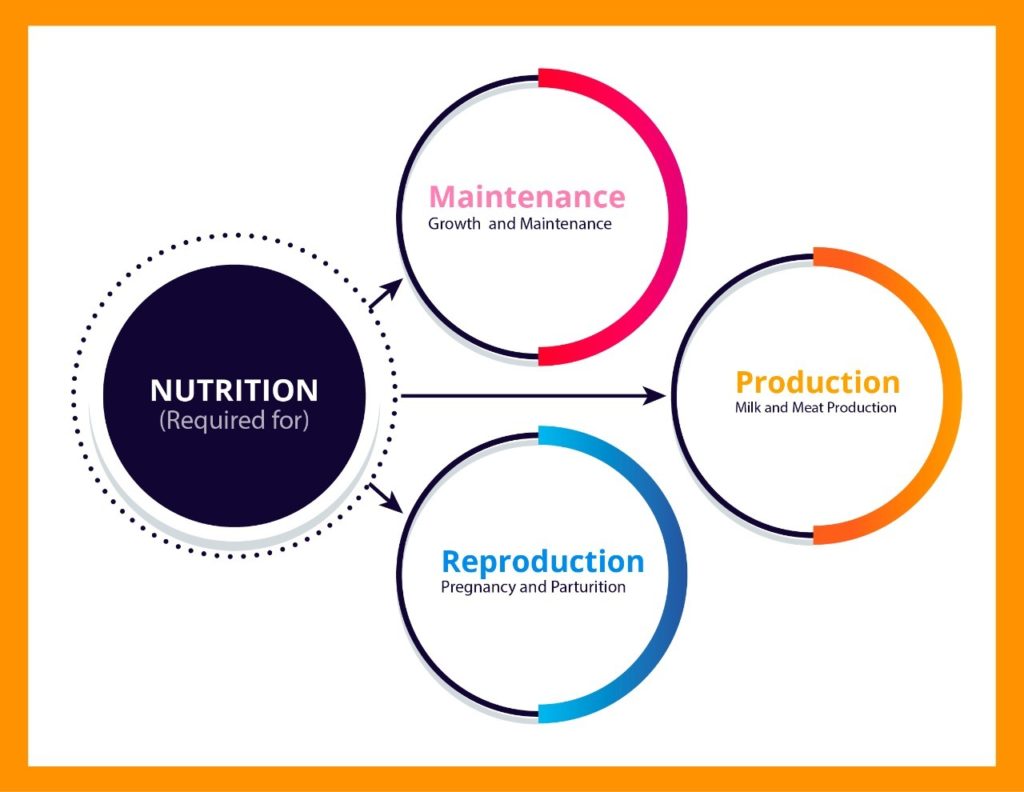
Nutrition widely affects milk quality and quantity. Insufficient and imbalanced feeding leads to energy and protein deficiencies resulting in low milk fat, SNF as well as milk yield lower than animal genetic potential and shorter productive life. Animals are more prone to reproductive disorders and metabolic diseases (such as milk fever and ketosis etc.) and the slow growth of heifers causes delay in required weight gain for breeding.
At end lactation, animals should not be fed any excessive supply of energy. Animals in good health condition will hardly face problems during and after parturition. Feeding as per cattle requirements helps to build up enough body reserves to avoid negative energy balance during the early lactation.
Balanced Feed
Components of a well-balanced feed are:
- Water
- Carbohydrates
- Protein
- Vitamins
- Minerals
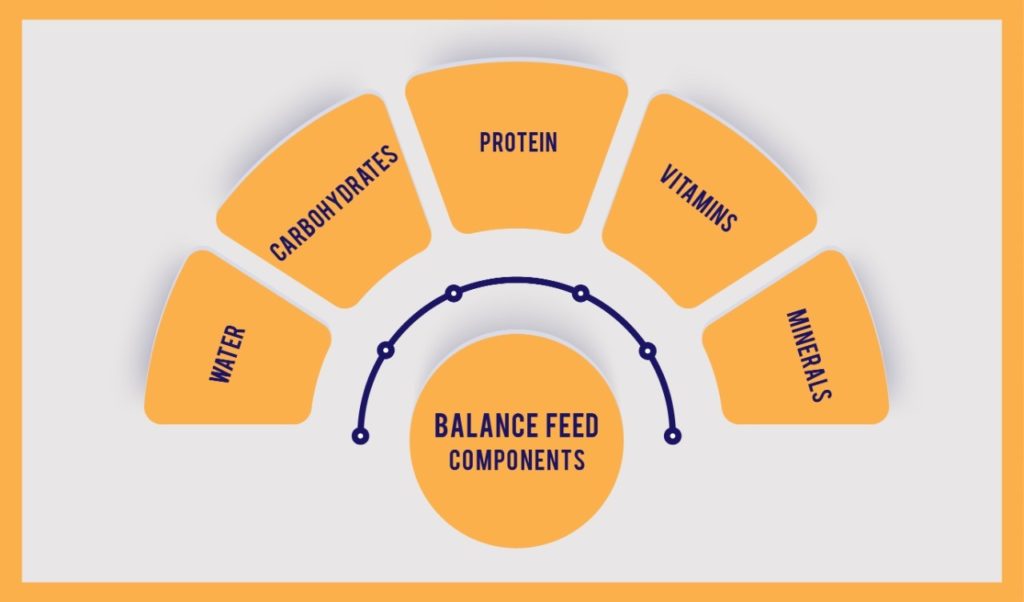
Water
Water is a source of life and an important part of milk composition. Water is the most efficient and economical feed to increase milk production. Animals need water to maintain their body fully functional and appropriate digestion. A lactating animal requires 150-250 liter fresh and clean water daily depending on the body weight, milk production and dry matter intake.
Carbohydrates
Carbohydrates are a good source of energy found in plants, particularly in grains and tubers like maize, sorghum, and wheat etc. Most of the carbohydrates are form of starch that contains amylose and amylopectin in variable concentrations. Starch digestibility varies depending on its different sources. Carbohydrates in the form of glycogen and give the filing effect to the stomach. Dasan Dairy Feeds in Pakistan uses rich source of carbohydrates.
Protein
Protein is an organic compound which is made up of amino acids. Protein contains carbon, hydrogen, oxygen, nitrogen. Protein also contain sulfur, iron and phosphorus. Bar seem, Lucern, Janter, Guara and oil cakes are the sources of all protein. Protein is required for growth, body structure development and plays a vital role in antibodies formation to develop immunity in body. Dasan Dairy Feeds in Pakistan uses rich source of proteins
Vitamins
Vitamins are composite organic compounds required for life and good health. These are essential part of animal feed and produces by animal flora. Vitamin A, D3 and E are important feed additives. Dasan Dairy Feeds in Pakistan contains a variety of vitamins required for animal body
Minerals
Minerals are essential dietary components required in relatively small quantities. Calcium, sodium, phosphorus, magnesium, iron, zinc, copper and cobalt are some of the important minerals. Minerals act as enzymes activator, give strength to body structure and play a vital role in osmosis, muscle contraction and nerve transmission and stimulate the immunity. Dasan Dairy Feeds in Pakistan contains micro and macro mineral as per animal requirement.
Feed Resources
There are two main types of feed resources:
- Roughages
- Concentrates
Roughages
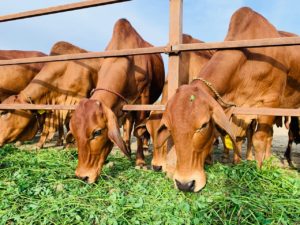
Roughages are plants or parts of plants in form of fresh (Green fodder), dried (Hay) or ensiled (Silage) that normally contain high percentage of crude fiber (18%) and low and low total digestible nutrients (TDN less than 60%). Green Roughages have a high moisture content and easy digestibility. Roughages provide protein and carbohydrates and helps to regulate your digestion. Silage /Dasan Silage, Maize, Barseem, Lucerne, Sorghum and grasses are example of roughages.
Concentrates
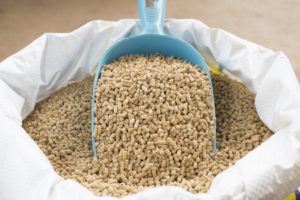
Concentrates are a broad classification of feed stuffs which are high in energy value and low in fiber content compared to forage. Concentrates i.e. Dasan Feeds contain fat, cereal grains, oil meals or cakes, and their by-products, used as supplementary feed to increase the energy level of the ration for animals or to compensate for any other nutrient deficiencies in forage ration.
